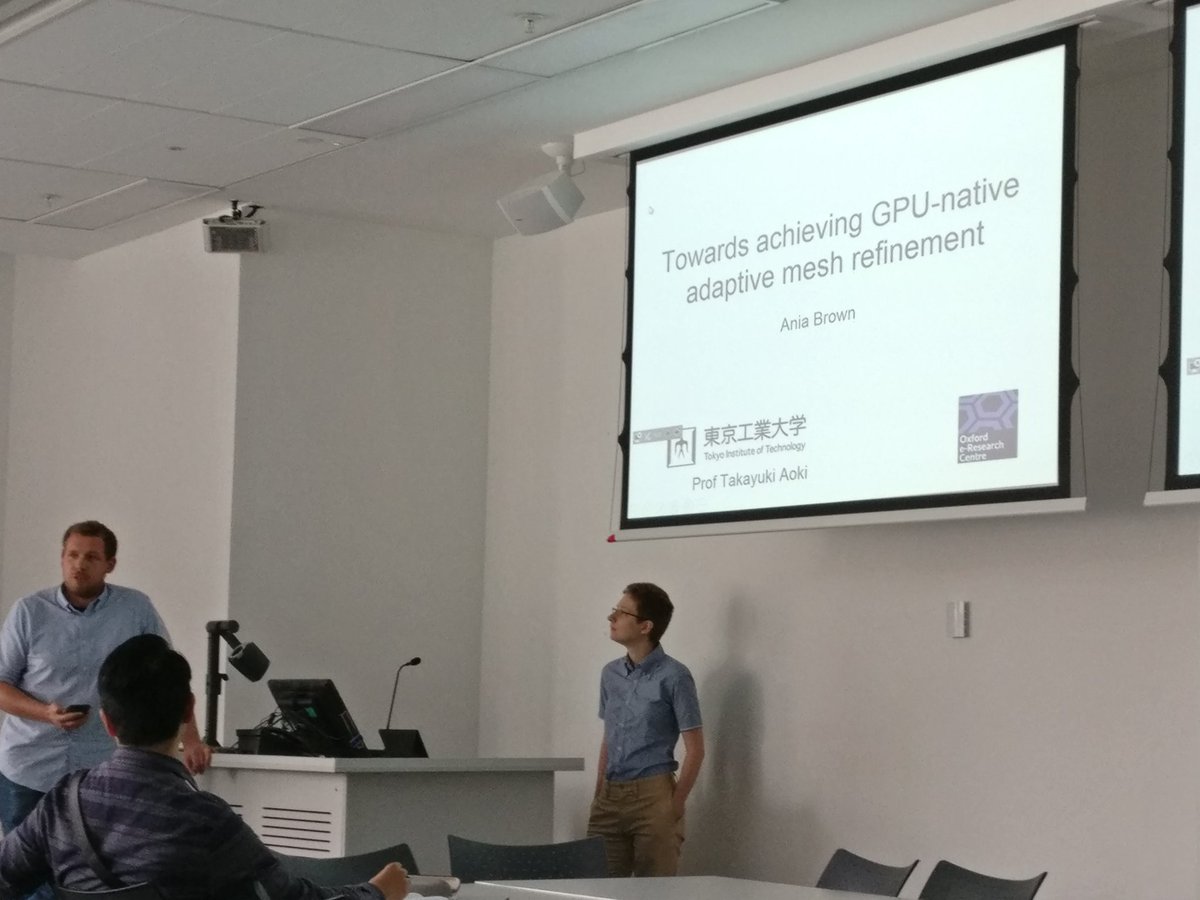All of our events may be recorded and shared via the University of Sheffield Kaltura platform so those who cannot attend may still benefit. We will consider your attendance implicit consent to this.
Abstract: Modern simulations model increasingly complex multiscale systems, and the need to capture details at multiple length scales can lead to large memory requirements. Adaptive mesh refinement (AMR) is a method for reducing memory cost by varying the accuracy in each region to match the physical characteristics of the simulation, at the cost of increased data structure complexity. This complexity is a particular problem on the GPU architecture, which is most naturally suited to regular data sets. I will describe some of the optimisation and software challenges that need to be considered when implementing AMR on GPUs, based on my experience working on a GPU-native framework for stencil calculations on a tree-based adaptively refined mesh as part of my Master degree. Topics covered will include achieving coalesced access with the AMR data structure, memory defragmentation after grid changes and load balancing using space-filling curves.
Bio: Ania is a research software engineer at the Oxford e-Research Centre. Her research interests are a combination of performance optimisation for large scale scientific simulation and software development methodology to improve the quality of such codes. She received her Master degree from the Tokyo Institute of Technology in 2015.

For queries relating to collaborating with the RSE team on projects: rse@sheffield.ac.uk
Information and access to Bede.
Join our mailing list so as to be notified when we advertise talks and workshops by subscribing to this Google Group.
Queries regarding free research computing support/guidance should be raised via our Code clinic or directed to the University IT helpdesk.
List of archived pages: Archive.